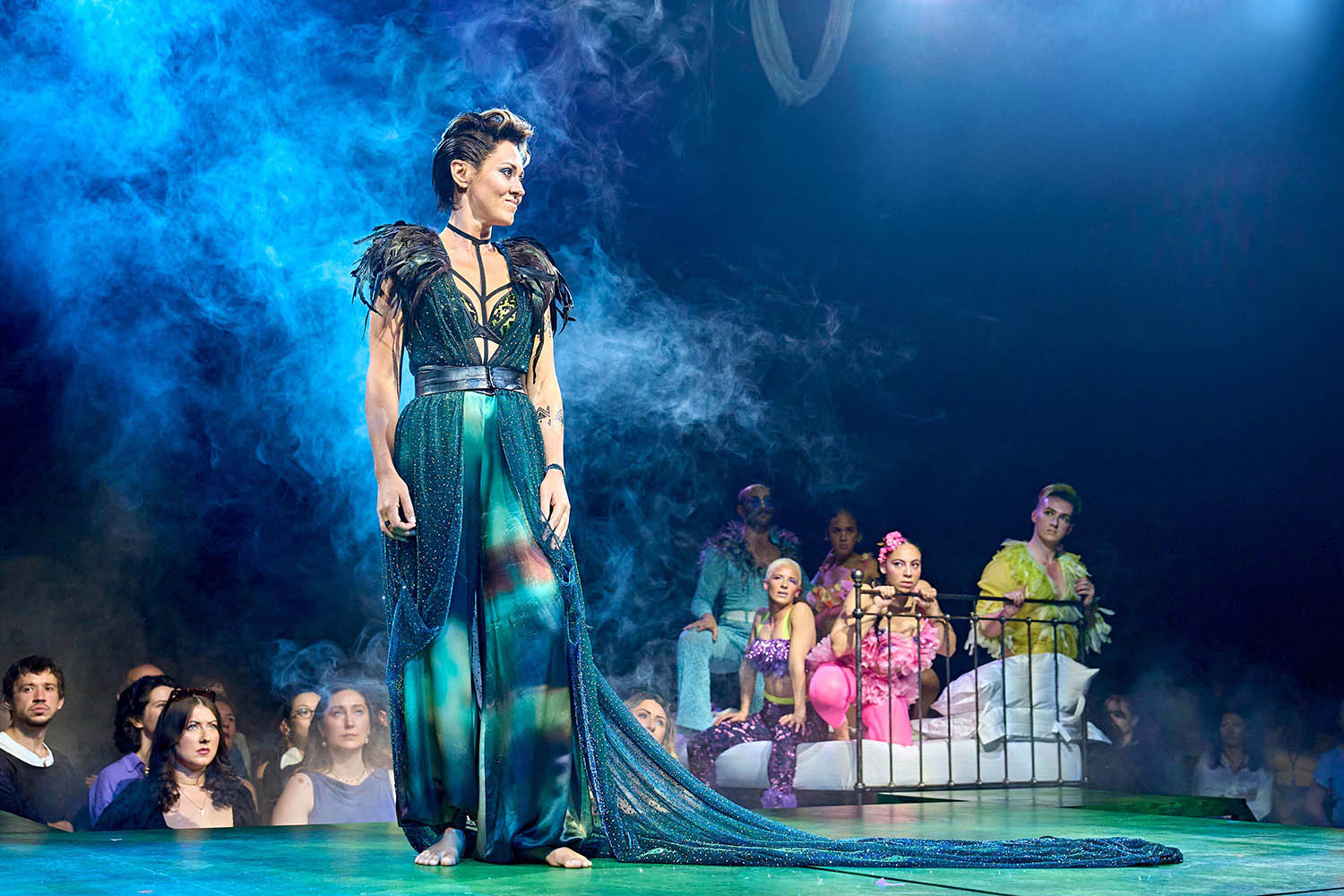Midsummer is back, in delirious splendour and a little ahead of its official calendar date. Nicholas Hytner’s much-loved, immersive A Midsummer Night’s Dream is establishing itself once again as a party in perpetual motion at the Bridge theatre. This revival of his popular 2019 Shakespeare production, which starred Gwendoline Christie, throbs and writhes, visually in keeping with a play so intent on poking fun at the passionate, “seething brains” of obsessive lovers.
Such a lively, interactive staging was clearly designed to engender the kind of fomo that drives a younger crowd to buy tickets. And it seems to work. Half the pleasure of the evening is in witnessing the rapturous reactions of those with standing tickets who mix with the actors in the middle. Many seem genuinely struck with wonder as the story unfolds around them.
Even the staid, seated punters enjoy a fairly close encounter with a glamorous fairy king and queen who can razzle-dazzle. British Hollywood star JJ Feild makes a stylish Oberon who, in this version, swaps roles with Susannah Fielding’s feisty Titania. The unusual switch gives Fielding’s character more disruptive agency without upsetting too much of the balance of the dialogue. It means that this time it’s Oberon, and not his queen, who is duped into a brief, besotted fling with Bottom the weaver.
At this point, a twinge of alarmed panic may be felt by a few textual purists, or perhaps by A-level students already trying to get their head round the play’s more orthodox mismatched sexual antics. But it does allow the show’s designer, Bunny Christie, and movement director, Arlene Phillips, to orchestrate some spectacular, non-heteronormative hijinks on a bed that orbits the room like a carousel of love during the heights of their deluded bliss.
The sex quotient, squeezed from the text like drops of magic love potion, is in the proper dosage
The sex quotient, squeezed from the text like drops of magic love potion, is in the proper dosage
Emmanuel Akwafo is the latest in a line of fine Bottoms to be crowned with asses’ ears. His softly spoken, slow-burn appeal reaches its peak in a joyfully silly death scene as Pyramus in the play-within-a-play. Akwafo’s comic prowess is matched by Felicity Montagu, who plays Quince, the boss of the troupe of would-be actors. Together these two steer an unusually convincing company of rude mechanicals towards a talent show-style finale that neatly picks up on a trail of insider jibes left by Shakespeare about what tends to make for rotten entertainment.
The danger with any revival, though, is that times move on. A cabaret atmosphere is now, six years since it was imagined here, almost a requirement for a popular theatrical hit, and is quite close to becoming the kind of “old device” that Theseus derides at the end of the play. Similarly, acrobatics and pop-up platforms are as conventional today as the proscenium arch and French windows once were.
The sex quotient squeezed from the text, like drops of the magic love potion, is in the proper dosage, but there is probably not quite enough space to hear some of the romantic poetry of youthful ardour. There are lots of built-in ad libs throughout too, leaning rather in the direction of too many. When Helena’s dialogue can still sound so modern and fresh, there is not much need for them. Shakespeare often pricks his own high-flown verse with a bit of blunt street lingo, in true panto mode; layering it up with contemporary asides seems gratuitous.
What does work very well, running alongside all the beguiling glitter and eroticism, is the true handling of the play’s central argument about what will last in human memory, whether that’s a dream, a love affair or a play. This is, as a result, a happy show that manages to seem newly naughty while honouring the original subversive thrust.
A Midsummer Night’s Dream is on at Bridge Theatre, London SE1 until 20 August
Photograph by Manuel Harlan
Newsletters
Choose the newsletters you want to receive
View more
For information about how The Observer protects your data, read our Privacy Policy

